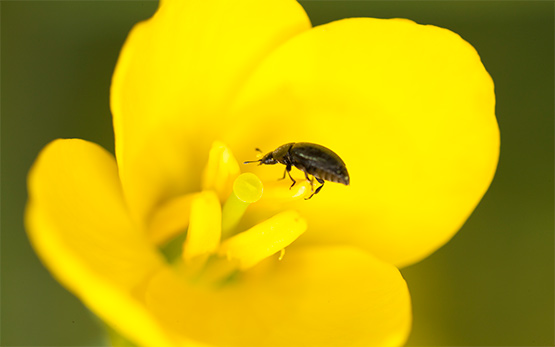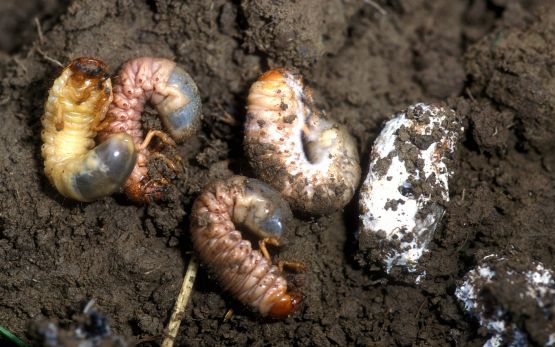Entomological research into oilseed rape – a crop with more than its fair share of pests – focuses on two main problems: pollen beetles (Meligethes aeneus, M. viridescens ) and cabbage-stem flea beetles (Psylliodes chrysocephala).
For the pollen beetles, a project re-evaluating the intervention threshold is currently underway. Moreover, a forecasting model of the flight of pollen beetles from their wintering area to the oilseed rape fields in spring is also being studied. Regarding the cabbage-stem flea beetles, different means of control and alternatives are in the study phase, in particular with the associated oilseed rape. There is also a plan to better target the right moment for implementing control measures once the threshold has been reached, in order to limit the number of interventions since the suspension of seed coatings. The different oilseed-rape pests are monitored in the spring and autumn, as is the evolution of resistance. Recently, the threshold for the rape-stem weevil was determined and published. As for sunflower, studies on the efficacity of aphicides on aphids have been carried out over the past few years.







